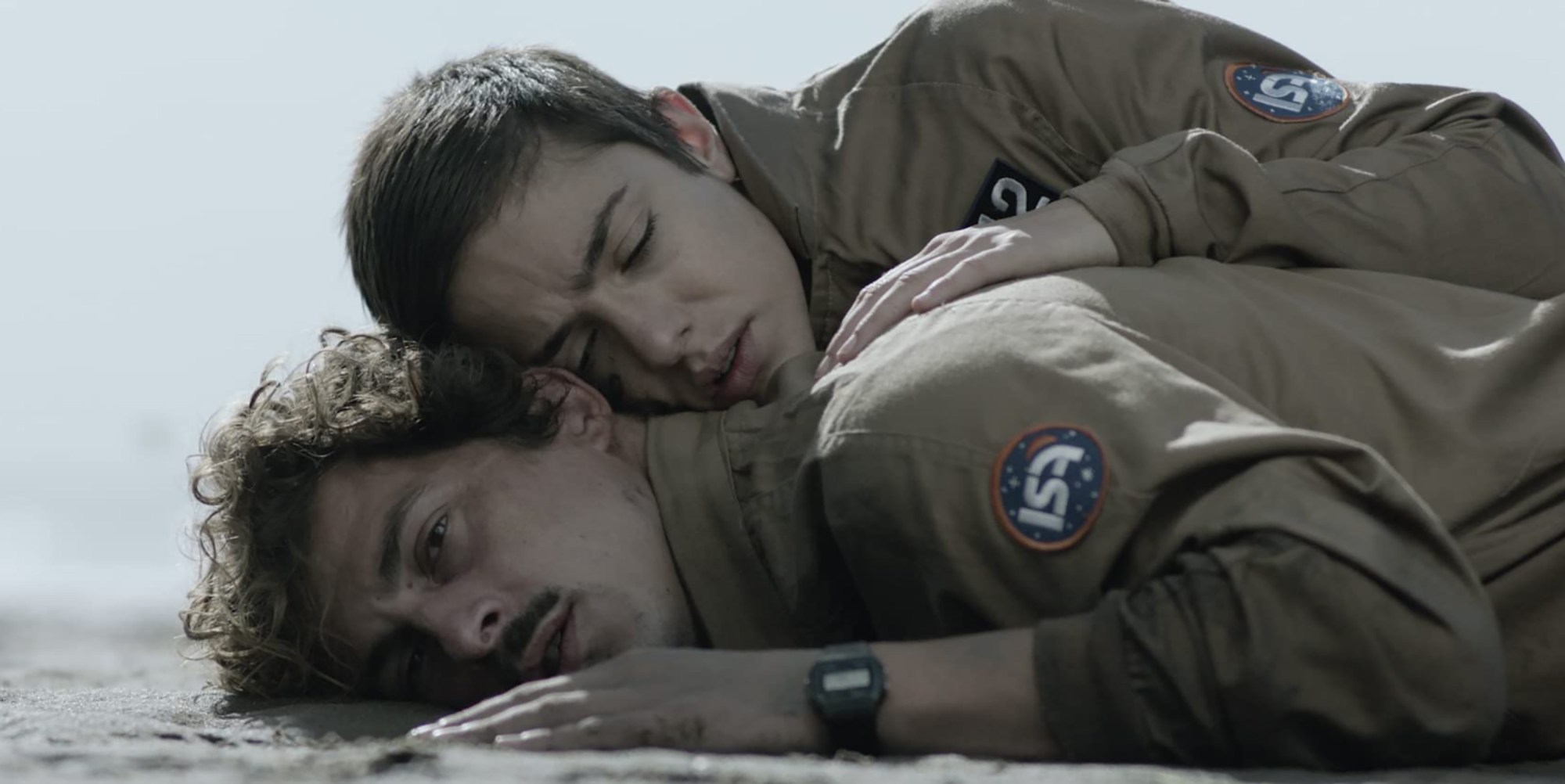
- Television
“Infinite Sea”, First Feature Film of Portuguese Writer/Director Carlos Amaral, Has US Premiere on Amazon Prime
Born in Portugal in the 80s, Carlos Amaral knew early on he was going to pursue cinema. After graduating in Porto, Amaral wore different hats in several Portuguese productions and managed to become one of the most sought-after visual effects artists in the country. His long-time interest in directing, however, led him to create a few shorts.
This eventually motivated a bigger adventure, a first feature film – Infinite Sea. It is a sci-fi movie that transports the audience to a parallel world where the protagonist tries to join an exodus to another planet. In the process, he meets Eva, who challenges him to come to terms with his purpose. Charged with pertinent existential questions, this film has had a successful festival run, including an award for best feature at the Black Sea Film Festival.
This interview was conducted over Zoom.
Infinite Sea is an auteur piece written and directed by you. What made this topic so personally relevant?
Around 2010, Portugal was seeing a big wave of immigration. Due to the economic crisis at the time, a great number of young and highly educated people were leaving the country. The media coined that movement the “brain exodus.” I remember wondering if I should leave too. The constant back and forth in my mind about the benefits and drawbacks of departing my own country for more accessible financial prosperity was the genesis of this idea. I kept imagining how it would be like to stay in a quasi-empty country if most people left. Thoughts around that concept made me ask myself some deeper questions about our humanity. That eventually turned into the script for this movie. I wanted to reflect on this topic. It was close to me and my experience.
This movie has an open ending. After reflecting on the subject, why did you refrain from offering answers to the existential questions you pose?
I did it on purpose. I believe cinema should not answer any questions. It should open the audiences’ minds to possibilities. I wanted the viewers to leave the theater inspired to ask questions of their own. In my perspective, answers should be an individual process.
What was the biggest challenge that you had to overcome during the production of Infinite Sea?
Choosing the scenes to cut out of the final version. That was hard. This movie took three weeks to shoot and there were a lot of night scenes. Those were hard too. There was some construction going on next to my place in Porto and I could not recover during the day. I almost did not sleep during the whole shoot.
How do you see the future of sci-fi and cinema in general?
I believe every genre will continue to have its place. I see theatergoers being divided in two groups: those who will pay to watch niche cinema and those who will pay to watch blockbusters. Movies that do not fall in either of these categories will probably be watched at home, through a streamer or pay-per-view. Tar is an example that falls in that category. Even though it was widely watched, it didn’t have a great theatrical run.
What are you working on next?
I am now working on a TV series that I wrote during the pandemic. It is about the tribal and Celtic traditions that exist in the north of Portugal and Galicia in Spain.

